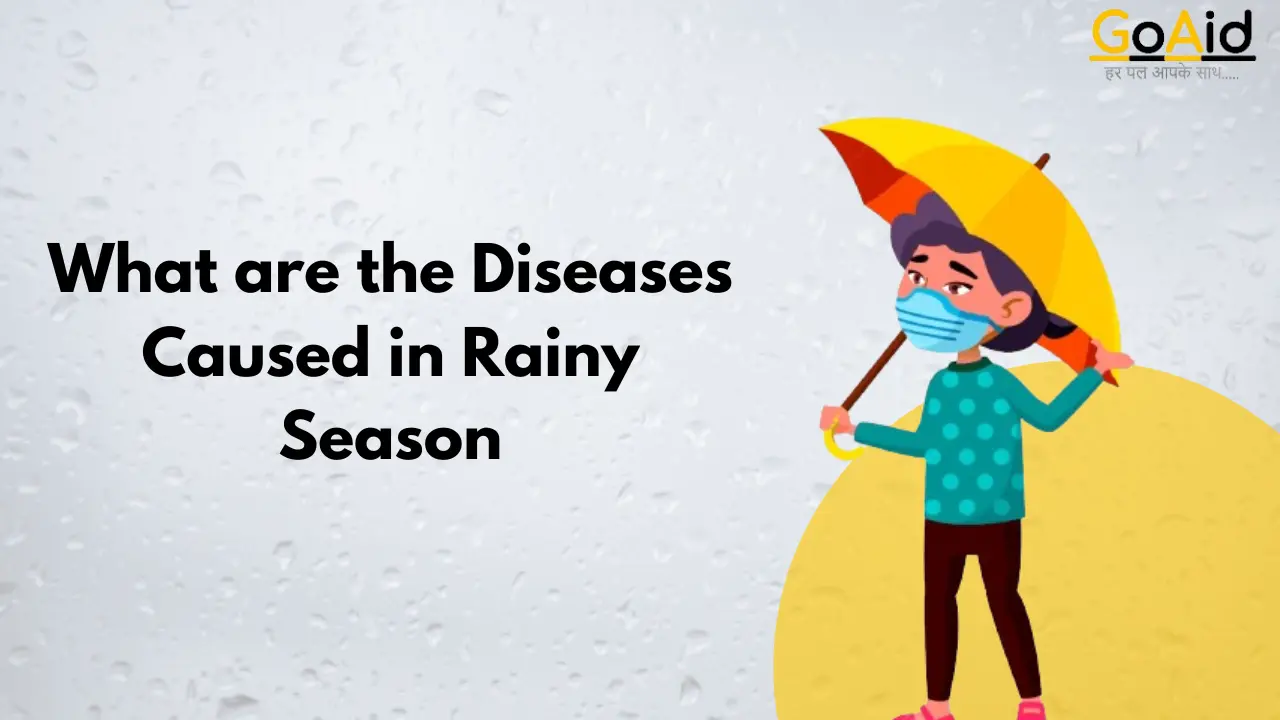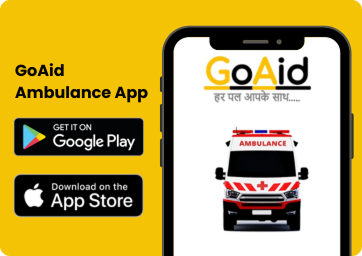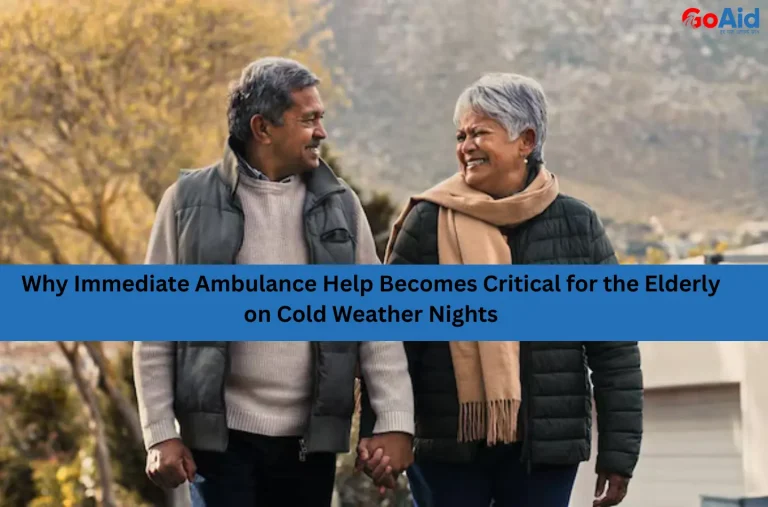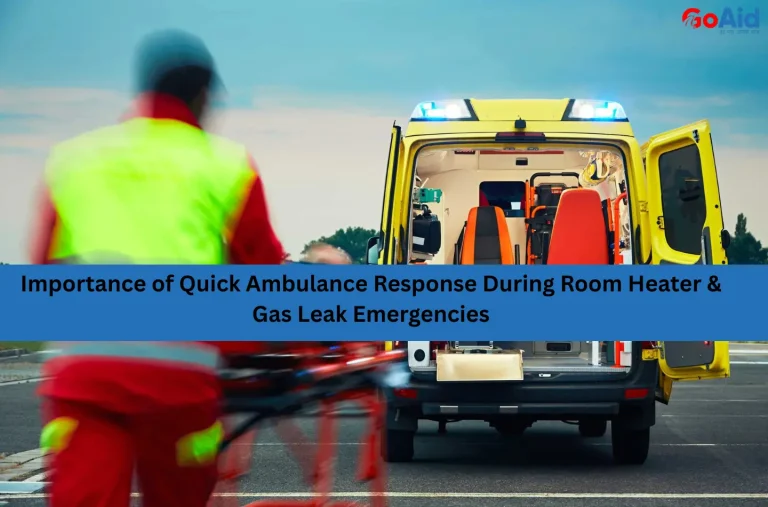In India, this is the month of May & this month is about to end. Now we will see the rainy season in India. The rainy season is beautiful, flavorous & full of fresh air. But do you know what? This is not everything! In India, with the beautiful rain, different types of Diseases in Rainy Season are born in the same season.
If you are willing to enjoy the rainy season full of happiness, then you must be aware of those Diseases in Rainy Season that are born during rainy reasons or those activities in the rainy season. Due to the rain, the medium of transfer of these diseases also spread fast. This is why being aware of those diseases, their symptom, causes & treatment helps us to protect ourselves from these diseases.
If you are also one who is willing to know about those rainy season diseases, then in this blog, we have added all the details of the most common diseases born in the rainy season and also list the top 7 rainy season diseases. Are you excited to know about them? Could you read our blog to the end?
So, letŌĆÖs start-
What are the Diseases Caused in Rainy Season?
These are the 7 most common diseases that are born or activate in rainy seasons:
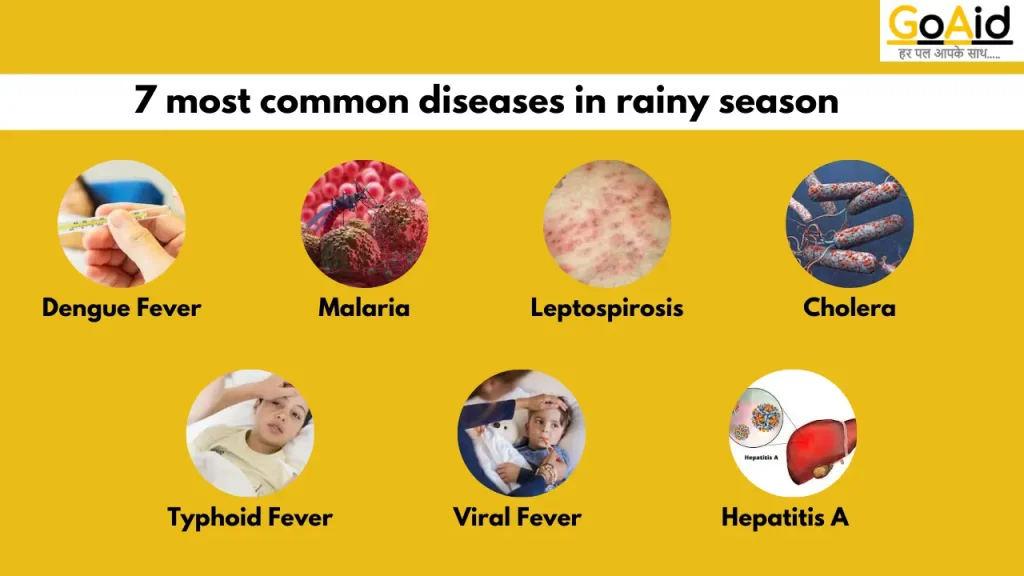
- Dengue Fever
- Malaria
- Leptospirosis
- Cholera
- Typhoid Fever
- Viral Fever
- Hepatitis A
Full details about the 7 Most Common Rainy Season Diseases
1. Dengue Fever ŌĆō First Most Common Disease in Rainy Season
Dengue Fever is a viral illness transmitted by the Aedes mosquitoes, particularly Aedes aegypti. It is prevalent in tropical and subtropical regions around the world. A sudden onset of fever characterizes the disease and can progress to severe dengue, which includes serious complications like bleeding, organ impairment, and plasma leakage.
Dengue poses a significant health burden, especially during the rainy season when mosquito breeding is rampant due to stagnant water.
Symptoms
- High fever
- Severe headache
- Pain behind the eyes
- Joint and muscle pain
- Nausea and vomiting
- Skin rash
- Mild bleeding (nose or gum bleed, easy bruising)
Causes
- Bite from an infected Aedes mosquito
- The virus has four serotypes (DENV-1, DENV-2, DENV-3, DENV-4)
- The mosquito breeds in stagnant water found in containers, tires, and flower pots
Treatment
- No specific antiviral treatment exists
- Supportive care: hydration, pain relief (acetaminophen), and rest
- Severe cases may require hospitalization
- Dengue vaccine (Dengvaxia) is available but is recommended only for individuals who have had a previous dengue infection
Top 10 Prevention Tips
These tips can be followed to prevent or avoid the Dengue Fever:
- Eliminate standing water in and around your home to prevent mosquito breeding.
- Use mosquito repellents containing DEET, picaridin, or oil of lemon eucalyptus.
- Wear long-sleeved clothing and long pants when outdoors.
- Use mosquito nets, especially if sleeping during the day.
- Install screens on windows and doors to keep mosquitoes out.
- Use mosquito coils or electric vapor mats in rooms.
- Ensure proper disposal of trash and cover water storage containers.
- Participate in community efforts to clean up potential mosquito breeding sites.
- Apply larvicides to water bodies that cannot be drained.
- Stay informed about dengue outbreaks in your area and take extra precautions during peak seasons.
2. Malaria ŌĆō Second Most Common Disease in Rainy Season
Malaria is a life-threatening disease caused by Plasmodium parasites, which are transmitted to humans through the bites of infected female Anopheles mosquitoes.
Malaria is particularly prevalent in tropical and subtropical regions, and the risk increases during the rainy season when mosquito breeding conditions improve. The disease can cause severe health complications and is a major cause of morbidity and mortality in many parts of the world.
Symptoms
- High fever
- Chills and sweating
- Headache
- Nausea and vomiting
- Muscle pain and fatigue
- Anemia
- Jaundice (yellowing of the skin and eyes)
Causes
- Bite from an infected Anopheles mosquito
- Transmission of Plasmodium parasites (P. falciparum, P. vivax, P. ovale, P. malariae, and P. knowlesi)
- The parasites infect and destroy red blood cells
Treatment
- Antimalarial medications: Artemisinin-based combination therapies (ACTs) are commonly used
- Other medications: Chloroquine, quinine, mefloquine, and primaquine, depending on the Plasmodium species and resistance patterns
- Severe cases may require hospitalization and intravenous drug administration
- No widely available vaccine yet, but research and development are ongoing
Top 10 Prevention Tips
These tips can be followed to prevent or avoid the Malaria:
- Use insecticide-treated bed nets (ITNs) to prevent mosquito bites while sleeping.
- Apply mosquito repellents containing DEET or permethrin to exposed skin and clothing.
- Wear protective clothing, such as long sleeves and pants, especially during dusk and dawn when mosquitoes are most active.
- Install window and door screens to keep mosquitoes out of living areas.
- Use indoor residual spraying (IRS) with insecticides to reduce mosquito populations.
- Eliminate standing water in and around your home to prevent mosquito breeding.
- Support community-based mosquito control programs and initiatives.
- Take antimalarial prophylactic medications if traveling to high-risk areas.
- Educate yourself and your community about malaria prevention and control measures.
- Seek medical attention promptly if you develop malaria symptoms, especially after travel to endemic areas.
By adopting these prevention strategies, you can significantly reduce the risk of contracting malaria during the rainy season.
3. Leptospirosis ŌĆō Third Most Common Disease in Rainy Season
Leptospirosis is a bacterial infection caused by the Leptospira species. Diseases in rainy season generally spread due to increased exposure to contaminated water.
The bacteria are found in the urine of infected animals, particularly rodents, and can survive in water and soil for weeks to months. Humans can contract the disease through direct contact with contaminated water, soil, or animal tissues.
Symptoms
- High fever
- Severe headache
- Muscle pain, particularly in the calves and lower back
- Chills
- Red eyes (conjunctival suffusion)
- Jaundice (yellowing of the skin and eyes)
- Abdominal pain, nausea, and vomiting
- Diarrhea
- Rash
Causes
- Exposure to water or soil contaminated with the urine of infected animals, especially during flooding or heavy rains
- Occupational exposure for those working with animals or in agriculture
- Recreational activities involving water, such as swimming in contaminated lakes or rivers
Treatment
- Antibiotics: Doxycycline or penicillin are commonly used to treat leptospirosis
- Severe cases may require intravenous antibiotics and hospitalization
- Supportive care: Hydration, pain relief, and treatment of any complications such as kidney or liver damage
Top 10 Prevention Tips
These tips can be followed to prevent or avoid the Leptospirosis:
- Avoid wading or swimming in potentially contaminated water, especially during and after heavy rains.
- Wear protective clothing and footwear when working in wet or muddy environments.
- Use gloves and protective gear when handling animals or cleaning areas where animals live.
- Ensure proper drainage and avoid the accumulation of stagnant water around your home.
- Keep food and water covered to prevent contamination by rodents.
- Control rodent populations by using traps, and rodenticides, and maintaining clean surroundings.
- Wash hands thoroughly with soap and water after handling animals or coming into contact with potentially contaminated water.
- Educate community members about the risks and prevention methods of leptospirosis.
- Seek medical attention promptly if you develop symptoms after exposure to potentially contaminated water or animals.
- Implement rodent control measures in agricultural and residential areas to reduce the risk of leptospirosis transmission.
By following these prevention tips, you can minimize the risk of contracting leptospirosis during the rainy season.
4. Cholera ŌĆō Fourth Most Common Disease in Rainy Season
Cholera is an acute diarrheal illness caused by infection with the bacterium Vibrio cholerae. It is typically spread through contaminated water and food, and outbreaks are common during the rainy season due to flooding, which can contaminate water supplies.
Cholera can lead to severe dehydration and death if not treated promptly. It remains a significant public health issue in many developing countries.
Symptoms
- Watery diarrhea, often described as ŌĆ£rice-water stoolsŌĆØ
- Vomiting
- Rapid heart rate
- Loss of skin elasticity
- Dry mucous membranes
- Low blood pressure
- Thirst
- Muscle cramps
Causes
- Ingestion of water or food contaminated with Vibrio cholera
- Poor sanitation and inadequate access to clean drinking water
- Consumption of raw or undercooked seafood from contaminated waters
Treatment
- Rehydration: Oral rehydration salts (ORS) or intravenous fluids for severe cases
- Antibiotics: In severe cases, antibiotics like doxycycline, azithromycin, or ciprofloxacin can reduce the duration and severity of the illness
- Zinc supplements: Can help reduce the duration of diarrhea in children
Top 10 Prevention Tips
These tips can be followed to prevent or avoid the Cholera:
- Drink only bottled, boiled, or chemically treated water. Use water purification tablets if necessary.
- Avoid ice cubes unless made from safe water sources.
- Wash your hands frequently with soap and safe water, especially before eating and after using the toilet.
- Eat food that is thoroughly cooked and served hot. Avoid raw and undercooked seafood.
- Peel fruits and vegetables yourself. Avoid salads and other raw foods.
- Dispose of feces in a sanitary manner to prevent contamination of water sources.
- Use latrines or other sanitation systems to dispose of human waste.
- Participate in community health education programs about cholera prevention.
- Get vaccinated if you are in an area with active cholera transmission. Oral cholera vaccines (OCVs) are available and can provide some protection.
- Treat household water with chlorine, iodine, or other effective disinfectants if the safety of the water source is uncertain.
5. Typhoid Fever ŌĆō Five Most Common Diseases in Rainy Season
Typhoid fever is a serious bacterial infection caused by Salmonella Typhi. It spreads through contaminated food and water and is more common in areas with poor sanitation. The rainy season often exacerbates the risk of flooding and water contamination. Typhoid fever can lead to severe complications if not treated promptly.
Symptoms
- High fever
- Weakness and fatigue
- Stomach pain
- Headache
- Loss of appetite
- Diarrhea or constipation
- Rash (rose-colored spots)
- Enlarged liver and spleen
Causes
- Ingestion of food or water contaminated with Salmonella Typhi
- Poor sanitation and hygiene practices
- Close contact with an infected person
Treatment
- Antibiotics: Commonly prescribed antibiotics include ciprofloxacin, azithromycin, and ceftriaxone
- Hydration: Adequate fluid intake is essential to prevent dehydration
- Rest and supportive care: Ensuring the patient gets enough rest and nutrition
- Vaccination: Typhoid vaccines (injectable Vi polysaccharide vaccine or oral live-attenuated Ty21a vaccine) can help prevent infection
Top 10 Prevention Tips
These tips can be followed to prevent or avoid Typhoid Fever:
- Drink only bottled, boiled, or chemically treated water.
- Avoid ice cubes unless made from safe water sources.
- Wash hands thoroughly with soap and water before eating and after using the toilet.
- Eat only thoroughly cooked and hot food.
- Avoid raw fruits and vegetables unless you can peel them yourself.
- Maintain proper sanitation and hygiene in food preparation areas.
- Dispose of human waste properly to prevent contamination of water sources.
- Avoid eating street food, as it might be prepared under unsanitary conditions.
- Get vaccinated against typhoid fever, especially if you live in or travel to high-risk areas.
- Educate community members about the importance of good hygiene and safe food practices.
6. Viral Fever ŌĆō Sixth Most Common Disease in Rainy Season
Viral fever is a common term for a group of viral infections that cause a rise in body temperature. These fevers can be caused by various viruses, such as those responsible for the common cold, influenza, and other respiratory infections. During the Diseases in Rainy Season, viral fevers become more prevalent due to increased humidity and the proliferation of vectors such as mosquitoes. These infections are generally self-limiting but can cause significant discomfort and illness.
Symptoms
- High fever
- Chills and sweating
- Headache
- Muscle and joint pain
- Fatigue and weakness
- Sore throat
- Runny or stuffy nose
- Cough
- Loss of appetite
Causes
- Infection with various viruses (e.g., influenza virus, rhinovirus, dengue virus)
- Spread through respiratory droplets from coughs or sneezes
- Contaminated food or water
- Insect bites, particularly mosquitoes
Treatment
- Rest and hydration: Drink plenty of fluids and rest to help your body recover
- Fever reducers: Medications such as acetaminophen or ibuprofen to reduce fever and alleviate pain
- Antiviral medications: In specific cases like influenza, antiviral drugs may be prescribed
- Supportive care: Addressing symptoms like cough and sore throat with appropriate medications
Top 10 Prevention Tips
These tips can be followed to prevent or avoid their Fever:
- Practice good hand hygiene: Wash hands frequently with soap and water.
- Avoid close contact with infected individuals to prevent the spread of viruses.
- Use hand sanitizers with at least 60% alcohol when soap and water are not available.
- Keep your living environment clean and well-ventilated.
- Stay up-to-date with vaccinations, such as the flu vaccine.
- Avoid touching your face, especially the eyes, nose, and mouth, with unwashed hands.
- Use mosquito repellents and wear protective clothing to prevent mosquito bites.
- Ensure proper sanitation and hygiene in food preparation and handling.
- Strengthen your immune system through a healthy diet, regular exercise, and adequate sleep.
- Seek medical attention if you develop symptoms of viral fever, especially if they are severe or persistent.
7. Hepatitis A ŌĆō Seventh Most Common Disease in Rainy Season
Hepatitis A is a highly contagious liver infection caused by the hepatitis A virus (HAV). It is commonly spread through contaminated food and water or close contact with an infected person. During the Diseases in Rainy Season, there is an increased risk of hepatitis A outbreaks due to poor sanitation and water contamination.
The disease can range from mild to severe and typically resolves on its own, but it can cause serious complications in some cases.
Symptoms
- Fever
- Fatigue
- Loss of appetite
- Nausea and vomiting
- Abdominal pain or discomfort
- Dark urine
- Clay-colored stools
- Jaundice (yellowing of the skin and eyes)
Causes
- Ingestion of food or water contaminated with the hepatitis A virus
- Close contact with an infected person, particularly in crowded or unsanitary conditions
- Poor sanitation and hygiene practices
Treatment
- Supportive care: Rest, adequate hydration, and nutrition to help the body fight the infection
- No specific antiviral treatment exists for hepatitis A
- Most people recover completely without any long-term liver damage
- Hepatitis A vaccine: Provides long-term immunity against the virus and is recommended for individuals at risk of exposure
Top 10 Prevention Tips
These tips can be followed to prevent or avoid Hepatitis A:
- Practice good hygiene: Wash hands thoroughly with soap and water after using the toilet, changing diapers, and before preparing or eating food.
- Drink only bottled or boiled water, especially in areas with poor sanitation.
- Avoid eating raw or undercooked shellfish and seafood.
- Peel and wash fruits and vegetables thoroughly before eating.
- Avoid consuming food or beverages from street vendors, as they may be prepared under unsanitary conditions.
- Ensure proper sanitation and hygiene in food preparation areas.
- Dispose of human waste properly to prevent contamination of water sources.
- Vaccinate against hepatitis A, particularly if you are traveling to high-risk areas or working in healthcare or food-handling professions.
- Educate yourself and your community about the risks and prevention of hepatitis A.
- Seek medical attention if you develop symptoms of hepatitis A, especially if you have been in contact with an infected person or traveled to an area with known outbreaks.

Conclusion
In conclusion, the Diseases in Rainy Season brings with it an increased risk of several common diseases, each with its own set of symptoms, causes, and preventive measures. In this comprehensive guide, we have delved into the details of the seven most prevalent diseases during this season: Dengue Fever, Malaria, Leptospirosis, Cholera, Typhoid Fever, Viral Fever, and Hepatitis A.
By providing insights into symptoms, causes, treatments, available vaccines, and top prevention tips, we aim to empower individuals with the knowledge to protect themselves and their communities. Should you have any further inquiries or require clarification, please don’t hesitate to reach out in the comment box below. Stay informed, stay safe.

